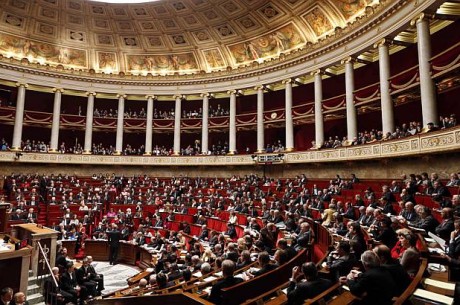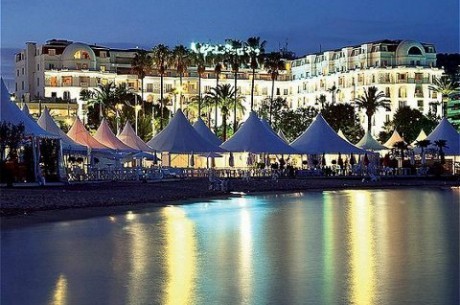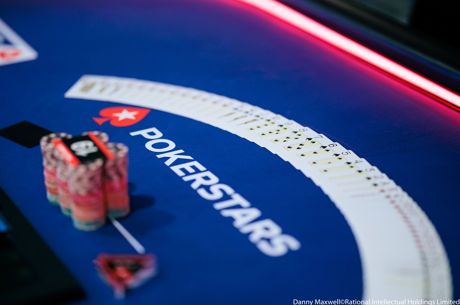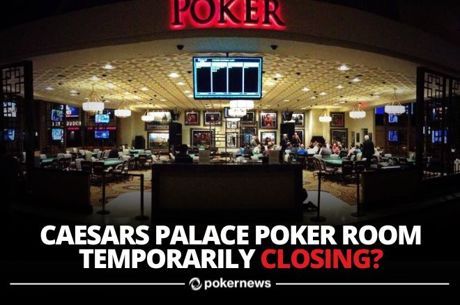Exclusive: Former ARJEL President Says "French Parliament Closed to Shared Liquidity"
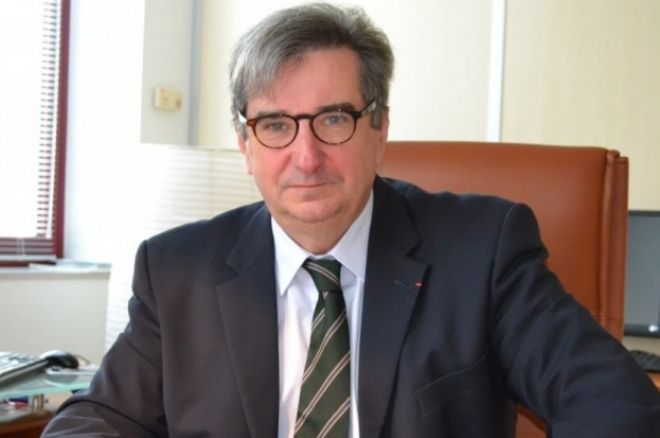
"Shared liquidity and a greater offer of games are crucial for poker��s future, in France as anywhere else," said former French regulator ARJEL President Jean-Fran?ois Vilotte, as he still did not change his mind about the measures European governments need to agree upon for poker to overcome the current negative trends even now that he chose to devote his efforts to a new cause.
Openly critical of the way his government dealt with many poker-related issues, and dissatisfied by the lack of operational powers the regulator was left with, Vilotte has been a long-time promoter of shared liquidity and believes it should bring together players from France, Spain, Italy and the United Kingdom. Vilotte has decided to end his adventure at the top of France��s online gaming regulator and move to a private Parisian law firm.
With a CV that includes a Masters in law at the prestigious Panth��on-Sorbonne University and a past at the Ecole Nationale d��Administration (ENA), France��s prestigious higher-education institute with alumni such as the current president Fran?ois Hollande and former presidents Jacques Chirac and Val��ry Giscard d��Estaing, Vilotte worked as Chief of Staff for Jean-Fran?ois Lamour first at the Ministry of Sports and then at the Ministry for Youth, Sports and Community Life (2002�C2006). He was then appointed Executive Director of the French Tennis Federation (2007), and since 2010 he has been President of ARJEL, France��s gaming regulator.
In charge of getting the country ready for the establishment of France's Internet gambling regulation and always engaged in developing a true cooperation at the European level for guaranteeing online gambling the chance to grow even during the financial crisis, Vilotte shocked many when last December he announced his decision to leave ARJEL presidency two years before the natural end of his mandate.
PokerNews met with Vilotte for an exclusive interview to discuss with him the reasons behind his choice to leave and the real chances the European poker market has of surviving what many call a "post-boom decline" that looks much different when seen from his perspective.
PokerNews: Looking back at the almost four years you spent as president of ARJEL, are you leaving with any regret?
Vilotte: No, I am not. I am proud of the great work the ARJEL team did during the past years. We managed to make our organization one of the most respected and visible in Europe.
I think it would have been good for ARJEL to have more powers, to have the chance of modifying national legislation so that we could rapidly adapt to the market needs and changes. But the work we have done so far has been excellent and this makes me confident about ARJEL��s future successes.
From the opening of the legal online French market to today��s decline, the years of your presidency have been very intense. What have been ARJEL��s hardest challenges?
The first real great challenge we had to face was the opening of the online poker market back in 2010. We had a very short time to get everything ready, but we managed to work very efficiently and we reached our goal.
Then, after the Black Friday, we also had to work hard to guarantee our players the highest protection possible. This meant, among other things, that we had to learn how to use and analyze the great amount of data we receive from operators.
Years after the first legal online poker hand was dealt, the French poker market seems to be doomed by an unstoppable decline. Numbers from 2013 Q4 show that cash games went down 12% in comparison with 2012. Why is this happening?
Poker is going through a difficult time, but this is not something that is happening only in France, as Spain and Italy are experiencing a similar trend as well. Seen from a broader perspective, this is a problem of legalized markets competing against non-legalized ones. If legalized markets won��t learn how to become more flexible and adjust themselves quicker to what people want, they will keep doing the work for illegal websites and help them to win against their legal competitors.
So, how can poker start growing again?
As online regulator, at ARJEL we are convinced that a prohibitionist approach does not work on the Internet, so the only way to convince people to play in accordance with the law is to provide players with an attractive legal offer. At the same time, we also need to keep working against illegal websites to make sure those will not be able to keep operating within the French market.
Together with this, in my opinion, there are two important measures we should all strive for. In the first place, we need national regulations to be more flexible and regulators to have more decisional powers to effectively face market changes. Then, we also need to have a more global approach on the gambling sector and a better understanding of the market.
It was for reaching these goals that when I was chairman at ARJEL, I made some proposals for moving towards an international liquidity and an increase in the number of poker games allowed in France. If in the future, we will manage to succeed on these points. I believe we will make legal and regulated markets more competitive and attractive than they are today.
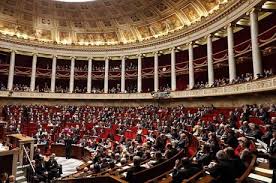
According to what the Rapporteur of the Committee on Economic Affairs Parliament, Razzy Hammadi told the French Parliament "...poker is declining because it is simply out of fashion, because people are not that interested in it anymore." Could it really be that simple after all?
Let me say that I consider that one not very accurate analysis. It is true that as far as numbers are concerned we can see a decrease in the number of players in France, but this is due to the fact that big players are either moving out of the county or playing on illegal websites.
The crisis is hitting against legal websites and not against the game of poker as such. Many players are not interested in national tables, but are seeking larger liquidities, and in this sense I think the offer needs to be adapted to what players ask and want. If we will not do so, they will always be tempted to go elsewhere and find more lucrative poker games.
It is also true that the financial crisis might be playing a small role in the decline, as at the same time poker is not a novelty anymore so the interest is not as high as it used to be. Yet, if goals such as flexibility and shared liquidity are to be reached, there is a good chance that the poker market will start growing again in the near future.
If international liquidity is the key to solve poker problems, how come we are still only talking about this? Who was against it in France?
For international liquidity to become possible, countries with similar legislative frameworks need to sign some special agreements and agree on modifying their national legislation. ARJEL was very much in favor of that: we sent a proposal about this to the French government and to the Parliament explaining the benefits international liquidity would bring to the country and advising the legislative changes required to proceed in that direction.
But that was not enough to succeed. Although both ARJEL and myself pushed hard for this to happen, the French Parliament decided that it was not the right moment to open to international liquidity.
Why?
I think you should direct your question to the Parliament or to the government. I am not the best person to answer to this.
As far as I know, the shift to shared liquidity was not the only time the French parliament decided to reject the regulator��s advice. How healthy is the relationship between ARJEL and the government today?
It is important to say that there is no conflict between ARJEL and the government as it is also true that many of ARJEL��s proposals were adopted by the government. The two biggest differences, the two main points of disagreement we still have, are about international liquidity and the number of poker games legally permitted.
How about taxation then? Didn��t you also ask for some changes in this field during the past years?
As ARJEL, we proposed some changes of the fiscal system applied to online gaming, but the government thought that following our ideas would bring lower tax revenues in. We believed the opposite.
From France to Europe: How do you find the way different European regulators work and interact with each other?
During my presidency, there has been a very strong cooperation with Italy, Spain and the United Kingdom. It is important for regulators to share as much information as they can, and I am very happy about the work we managed to do at the international level. It is also very important that countries with very different legislative framework find a way to cooperate and share their best practices.
Which is also why the European Commission established another advisory group named ��Gambling Experts Group�� for working on online gambling at a supranational level. What is ARJEL's role in that?
ARJEL and the French Government are represented in that group, and I think the Commission created something very useful to increase information sharing. Yet, it is important to clarify that we are not for creating a common regulation to be applied to all different member states.
Wouldn't a common tax system and legislative framework among different European member states be the best way to move towards international liquidity? Why are you against that?
At the moment, a common European tax system is nothing more than an illusion, and we should not forget that cultural and traditional differences are always very important, even when we discuss about gambling. Finding what works best should always be left to the discretion of each member state.
Wouldn��t this expose each legislator even more to the pressure of national gambling lobbies?
I don��t think so, not in France at least. The poker movement is still too fragmented for it.
Get all the latest PokerNews updates on your social media outlets. Follow us on Twitter and find us on both Facebook and Google+!

